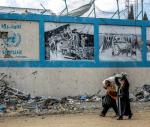You are here
Upgrading Jordan’s higher learning
Oct 23,2021 - Last updated at Oct 23,2021
In a world where the economy, skills and the future of work are changing, one of the effects of the COVID-19 has been to exacerbate unemployment while demand for labour and economic growth is rising. In Jordan, the rise in the unemployment rate, which currently stands at 25 per cent a youth unemployment rate of 49 per cent (one of two eligible youth is unemployed), and a slow recovery add to these challenges. The challenge for policy makers in today’s and tomorrow’s Jordan is to find employment for youth within this global trifecta and local deficits.
According to the World Economic Forum, the top ten skills of 2025 are: analytical thinking and innovation; active learning and learning strategies; complex problem solving; critical thinking and analysis; creativity, originality and initiative; leadership and social influence; technology use, monitoring and control; technology design and programming; resilience, stress tolerance and flexibility; and reasoning, problem solving and ideation. The ten can be grouped into four skill types: problem solving, self-management, working with others, and technology use and development.
In other words, the higher education systems that were designed for students of the past must change. The new students and markets no longer demand the outdated higher education products. Moreover, the pandemic necessitated the rapid growth of online learning, micro-credentials, and hybrid programs. Top universities around the world are already re-gearing for the challenge; they don’t want to be left behind.
Universities in Jordan must change to drive innovation and become catalysts of economic development. A recent Deloitte study points out that universities and higher education in general must: match skills development with market needs to drive economic recovery; restructure learning venues to enhance student access and affordability to learning; and adopt public-private partnerships to amplify the impact of higher education.
According to the Coursera Global Skills Report (2021), the countries with “higher overall skill proficiency and over-index in many disruptive skills, such as Machine Learning, Financial Technology, and Critical Thinking” have better performed across a number of economic outcomes. This is the way to go.
One finds it so frustrating that discussion regarding higher education in Jordan still focuses on matching majors (not skills) to market needs, when in fact what really matters is the skill sets. Degrees no longer matter, it is all about skill endowments, and enduring skill sets such as critical thinking and the ability to work with others.
Let us upgrade! In fact, we must upgrade!













